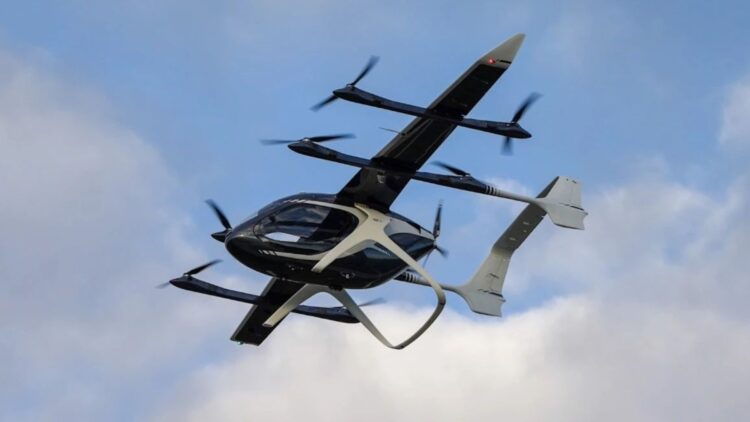The world has been dreaming about the flying car for many decades now. One country has unwittingly become the unofficial home of innovation in the automotive sector. As the world embraces the electrification of our vehicles, this country aims to have at least 100,000 flying cars buzzing around its cities by 2030. When one considers the volatile nature of the personal mobility sector, the company responsible for the new flying car will need the backing from an organization, or government, in this case, with a sizable bankroll.
Flying cars are no longer a vague dream for the future
The eVTOL, or electric vertical take-off and landing vehicle, has been part of the world’s dream for the future since it first made an appearance on our screens via movies such as Back to the Future. As the electric evolution of the mobility sector takes place, the eVTOL has received some significant investments and, as a result, has become more prevalent.
The very first flying car that the world was given a glimpse of came via the Alef Aeronautics model, the Model A. They debuted their version of a flying car for the world in 2018 and began deliveries in 2020. Another company that has propelled the flying car into our peripheral vision is the PAL-V Liberty. The Liberty has not received the best feedback due to its reliance on a gyrocopter design.
Innovation has found a new home in the global automotive sector.
As the flying car becomes a tangible thing we can buy, there are inevitably going to be several companies trying their utmost to create their version of a flying car. The electrification of our vehicles has resulted in improved infrastructure to charge the vast array of EVs currently on the roads. The rate of innovation that has been prevalent in the automotive industry has led to some truly remarkable improvements in the electric infrastructure and technology.
With the innovation needed in the automotive industry to support the electric vehicle, many companies have been established and have found success as a result. Most major automotive companies now offer a range of alternatively powered vehicles that require the company to innovate their engines and approach the alternative fuel sector cautiously.
Which Asian country is responsible for the new eVTOL?
Chinese company Chery has been a reputable player in the automotive industry since it was founded in 1997. The state-owned company was initially focused on producing cheap alternatives for the automotive market in China, and eventually found success all around the global sector. With that success, the Chinese company has now been able to pursue its other dream, creating a flying car or eVTOL.
Chery’s eVTOL will be launched in October this year, once Chery has dealt with the tricky legislation needed to get the concept approved. According to a report by the China Low Altitude Economic Alliance, at the current rate of growth, there could be up to 100,000 flying cars in the world as soon as 2030. China has been locked in a battle with America to dominate the global automotive sector.
Can the new eVTOL become the personal mobility vehicle for the future?
The world is fast approaching a future where the traditional car powered by the ever-troublesome gasoline will become a thing of the past. Massive investments in the alternatively powered vehicle of tomorrow have led the automotive sector to become the home of innovation for the world. Chery has the backing of the Chinese government, so they can afford to make some questionable investments into what they see as the personal mobility vehicle of tomorrow. With the release scheduled for October 2025, we will soon find out if they have made the right decision.
Disclaimer: Our coverage of events affecting companies is purely informative and descriptive. Under no circumstances does it seek to promote an opinion or create a trend, nor can it be taken as investment advice or a recommendation of any kind.


